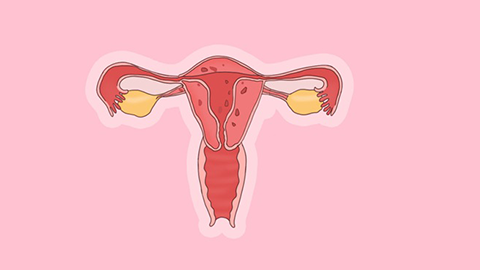What causes endometrial thickening?
Endometrial thickening may be caused by the secretory phase of the menstrual cycle, pregnancy, endocrine disorders, endometrial polyps, or endometrial hyperplasia. If abnormalities occur, timely medical attention is recommended. Detailed explanations are as follows:

1. Secretory Phase of the Menstrual Cycle: During the menstrual cycle, estrogen secreted by the ovaries promotes endometrial proliferation. During the secretory phase, the endometrium further thickens to provide a suitable environment for embryo implantation. This is a normal physiological process. No special treatment is required, and the endometrium naturally sheds and thins after menstruation.
2. Pregnancy: After conception, embryonic trophoblastic cells secrete hormones that maintain continued endometrial thickening to support embryonic development and ensure normal progression of pregnancy. This is a physiological change. Regular prenatal examinations are sufficient, and no treatment for endometrial thickening is necessary.
3. Endocrine Disorders: Prolonged high estrogen levels or insufficient progesterone can cause the endometrium to be stimulated solely by estrogen, leading to excessive proliferation, often presenting with menstrual irregularities, prolonged menstruation, or increased menstrual flow. Treatment may involve the use of dydrogesterone tablets, medroxyprogesterone acetate tablets, or progesterone soft capsules under a doctor's guidance to antagonize estrogen and regulate endometrial thickness by supplementing progesterone.
4. Endometrial Polyps: Under the influence of estrogen, localized endometrial tissue overgrows and forms polyps, causing overall endometrial thickening and an uneven morphology. This is often accompanied by abnormal uterine bleeding or prolonged menstruation. Polyps can generally be removed via hysteroscopy, and doctors may recommend postoperative use of levonorgestrel tablets, drospirenone ethinylestradiol tablets, or progesterone capsules.
5. Endometrial Hyperplasia: Abnormal proliferation of endometrial glands and stroma leads to significant endometrial thickening, with some cases exhibiting cellular atypia. It often presents with oligomenorrhea, heavy bleeding after amenorrhea, and certain types may carry a risk of malignancy. Treatment requires the use of medroxyprogesterone acetate dispersible tablets, hydroxyprogesterone caproate injection, or compound medroxyprogesterone acetate tablets under a doctor's guidance.
In daily life, maintaining a regular sleep schedule, avoiding excessive weight gain, and reducing intake of exogenous hormones are recommended. Regular gynecological examinations are important, especially when abnormal bleeding occurs, and prompt medical attention should be sought for accurate diagnosis and early intervention.







